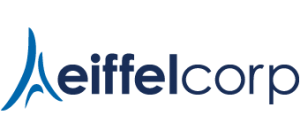
Cape Town, 01 March 2018: Technology has taken the blame for much online plagiarism, yet institutions experience that it also engages students meaningfully with lecturers, fellow students and resources, improving and deepening learning. Although accused of making cheating easier, it also enhances academic integrity.
A recent study, South African higher education institutions using Turnitin enjoyed a 44 percent decline in plagiarism and saw a 3012 percent increase in the number of papers graded online between 2010 and 2014.
The research indicates that higher education institutions in 12 of the 15 countries using Turnitin reduced unoriginal content by more than 30 percent. The majority of content matches from highly plagiarised submissions came from matches to other students’ papers rather than from websites, academic textbooks or journals.
Dr Zeenath Khan, Assistant Professor at University of Wollongong in Dubai, and leading expert on Academic Integrity in the region, says that from her experience the following factors affect academic integrity:
- strong parental integrity;
- honesty within the university culture;
- an institutional code of conduct around cheating with swift, harsh actions
“We cannot play cops and robbers with students”, said Khan. “We need to create an environment promoting integrity through holistic measures that every stakeholder accepts and is aware of. Technology is not beyond or outside of this system and students need to see it as a part of the solution and not the problem. At UOWD, our unified efforts inside and outside classrooms and through the innovative and transformative set up of assessments and use of technology such as Turnitin helps create such an environment of integrity,” she said.
Turnitin has been used at the University of Pretoria (UP) since 2008 and, during that year, 4 354 papers were submitted via the platform; by 2017, that number had risen to 150 563. Nearly half the papers in 2008 had similarity scores of 25% and higher, corresponding to material published on the web or assignments submitted by other students. As high similarity scores might indicate the presence of plagiarism, UP started with a drive to increase the originality of assessment papers, inter alia through adopting an academic integrity and plagiarism policy that created channels for educating students about plagiarism as well as introducing severe repercussions in cases of proven plagiarism. The policy was shared on the Library website and to academic departments, and subsequently widely noted and incorporated in assessment instructions across the university.
More UP lecturers use Turnitin to screen student assignments before marking, in order to verify that the work is the student’s own. The number of papers submitted to Turnitin increases year on year for a variety of reasons, one of which is the proven value of the system. In 2016, during the #feesmustfall campus disruptions, many departments used Turnitin for the first time at the end of the year for take-home assessments, bringing the total of papers submitted to 124 644 and the number of similarity reports to 133 481, increasing steeply from 83 668 reports in 2015. Not surprisingly given the clear evidence of the value of the software, in 2017 the use of Turnitin again increased steeply, with 150 563 submissions and a staggering 243 445 similarity reports.
Professor Wendy Kilfoil, Director of the Department of Education Innovation at UP agrees that two trends are evident: first, lecturers are making more use of Turnitin assignments owing to value and convenience, and, second, students are spending more time and effort on the correct referencing and preparation of assignments after the first submission and resubmission. The latter trend shows how more students are making serious efforts to submit high quality original writing.
“Basically 70-80% of submissions have similarity scores of less than 25% which means that most students are basically trying. Given that similarity reports are not evidence of plagiarism, an even higher percentage of students are doing their own work with integrity,”said Kilfoil.
These statistics show that the world-wide trend of plagiarism owing to easy copying and pasting from the web in academic writing can be reversed if a University has an institutional policy that consistently encourages original writing and academically sound referencing methodology, accompanied by a robust and effective online program that enables students to improve the originality of their papers.
Kenyan health librarian, Rosemary Thiong’o, received an Honourable Mention recently in the Turnitin Global Innovation Awards 2017: Moving forward with integrity. Thiong’o plays a key role in ensuring academic integrity and improving on original work for the Aga Khan University in Nairobi, which offers nursing, midwifery and medical training.
“Our medical students are required to run their thesis through the Turnitin software. There is a strong parallel between authentic academic research and background knowledge and the practical working on a patient: using the patient’s history, symptoms, medical regime and course of medical intervention,” said Thiong’o
“I believe that original work and academic integrity make better medical practitioners,” she emphasised.
According to Myles Thies, Director of Digital Learning Services at Eiffel Corp, digital modes of learning has had an impact on academic integrity.
“The ease with which people can copy and paste from the internet and the sheer volume of information on the web makes it difficult for faculty to identify plagiarism in every case. But we also have to recognize that not all plagiarism is intentional. Educating learners on how to correctly reference authors is as important as detecting where it occurs. This clearly illustrates the need for a technology-based solution that can scale and provide rapid and detailed originality and source feedback.”
Usage of Turnitin in South Africa/Africa
African Tii clients – +/- 350
Corporate and Government in South Africa: 10
Higher Education in Africa: 250
Schools in Africa: 100



